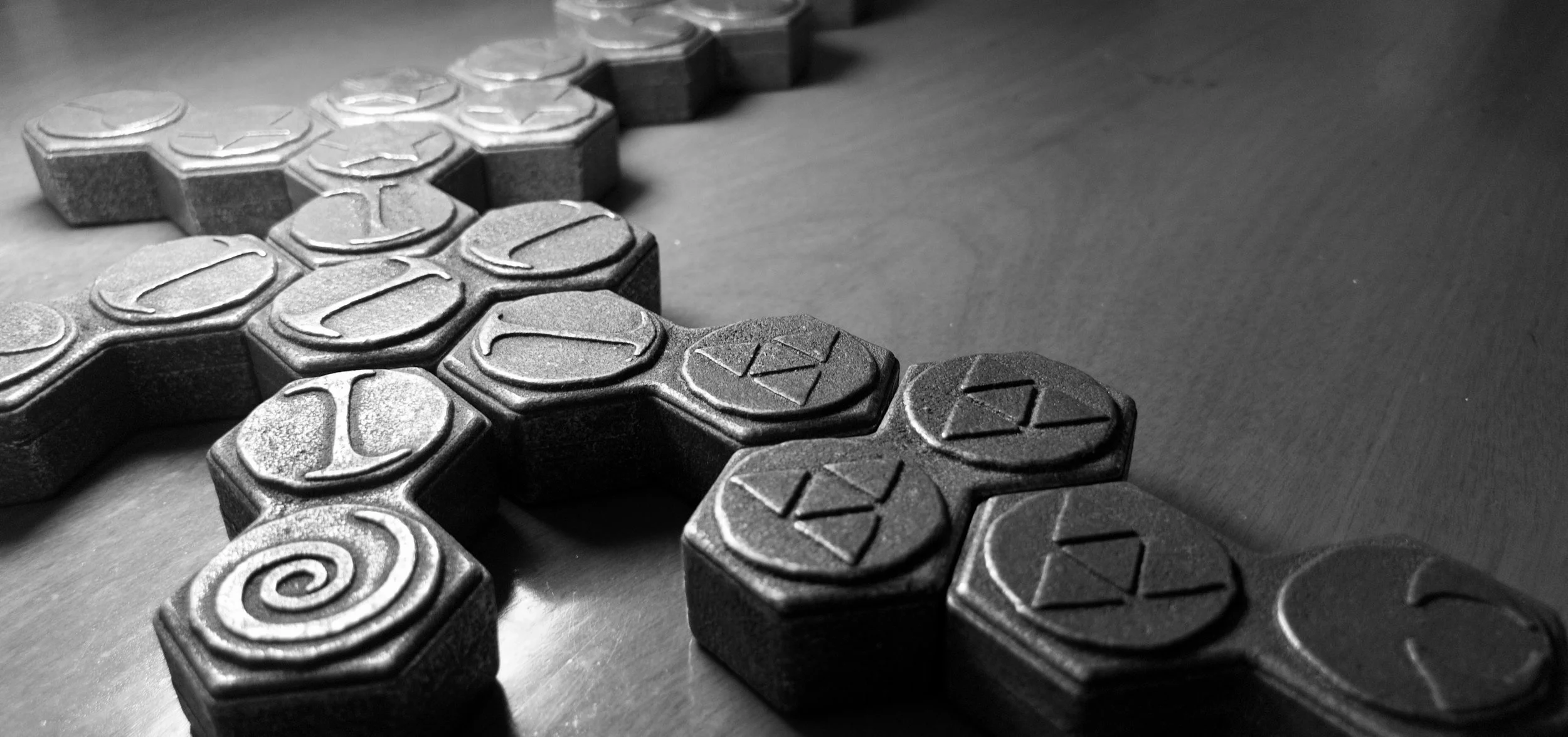Game pieces from https://cohado.com
I often get feedback on my writing that suggests I should make stronger attempts at simplifying my vocabulary. I take that feedback to heart every time I sit down to write. One of the ways I’m trying to simplify my writing is through the use of metaphors. Well-crafted metaphors can establish common ground and allow everyone to participate. However, there’s a fundamental flaw to communicating in metaphors. Poorly crafted metaphors lack precision, and even lose the meaning you intend to convey; worse yet, a bad metaphor can add another layer of confusion to the conversation. These are the challenges you face when you try to tackle complex ideas by simplifying your language. Would you rather risk losing people because of overly academic word choices or would you rather risk losing people because of overly simplified, poorly selected metaphors?
Why bother navigating all these intellectual landmines?
The simplest answer is that our world and society is broken; and world and society scale problems are complex. Furthermore, I genuinely enjoy exploring complex ideas, they’re like a puzzle that needs to be solved and I get immense satisfaction when I feel like I’ve helped solve a challenging puzzle. The longer answer is that, as you go through life, you begin discovering all these random puzzle pieces lying around and you eventually get to a point where you have collected enough of those pieces that you can start putting a few together. Over time, you start wondering what the world would look like if everyone started to put their collection of puzzle pieces together. You eventually come to the conclusion that it’s your duty to share your puzzle pieces with the collective, just to see what you can discover together. World and society scale problems are not solved by sole puzzle enthusiasts, we can only begin tackling these challenges when we bring all of our collective lessons to bear. What would the world look like if we all shared each other’s puzzle pieces with each other?
Every new puzzle piece brings into view a more complete picture, and with that picture, a realization of the vastness of the puzzle
Metaphors and analogies help us tap into personal experiences and unlock new understanding. Comparing something you have deep knowledge of or past experience with extends that knowledge and experience into completely new areas of understanding. Metaphors should evoke familiar emotions and draw on past lessons, each one reflecting those individual puzzle pieces we pick up along the way. Every once in a while, those puzzle pieces line up and we all get to expand our view of the picture.
Metaphors are the language of shared understanding
There isn’t enough time in a single life to learn everything there is to know about the world or to experience every possible human emotion. We don’t even have the language to convey all the intricacies and nuances of our own understanding, let alone to convey our truths to someone else. But if we tend to our stories, and reflect on life’s lessons, we can start to tackle the challenges we face together through a stronger sense of collective intelligence.
What puzzle pieces are you holding onto?
